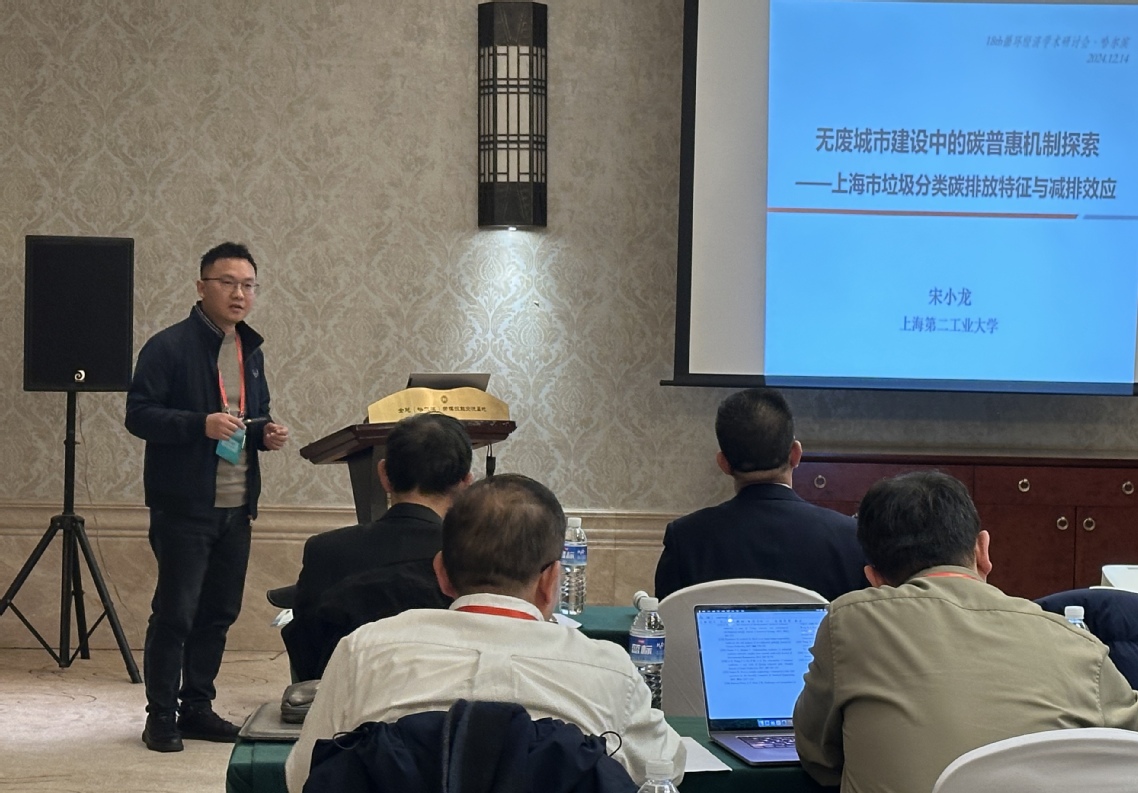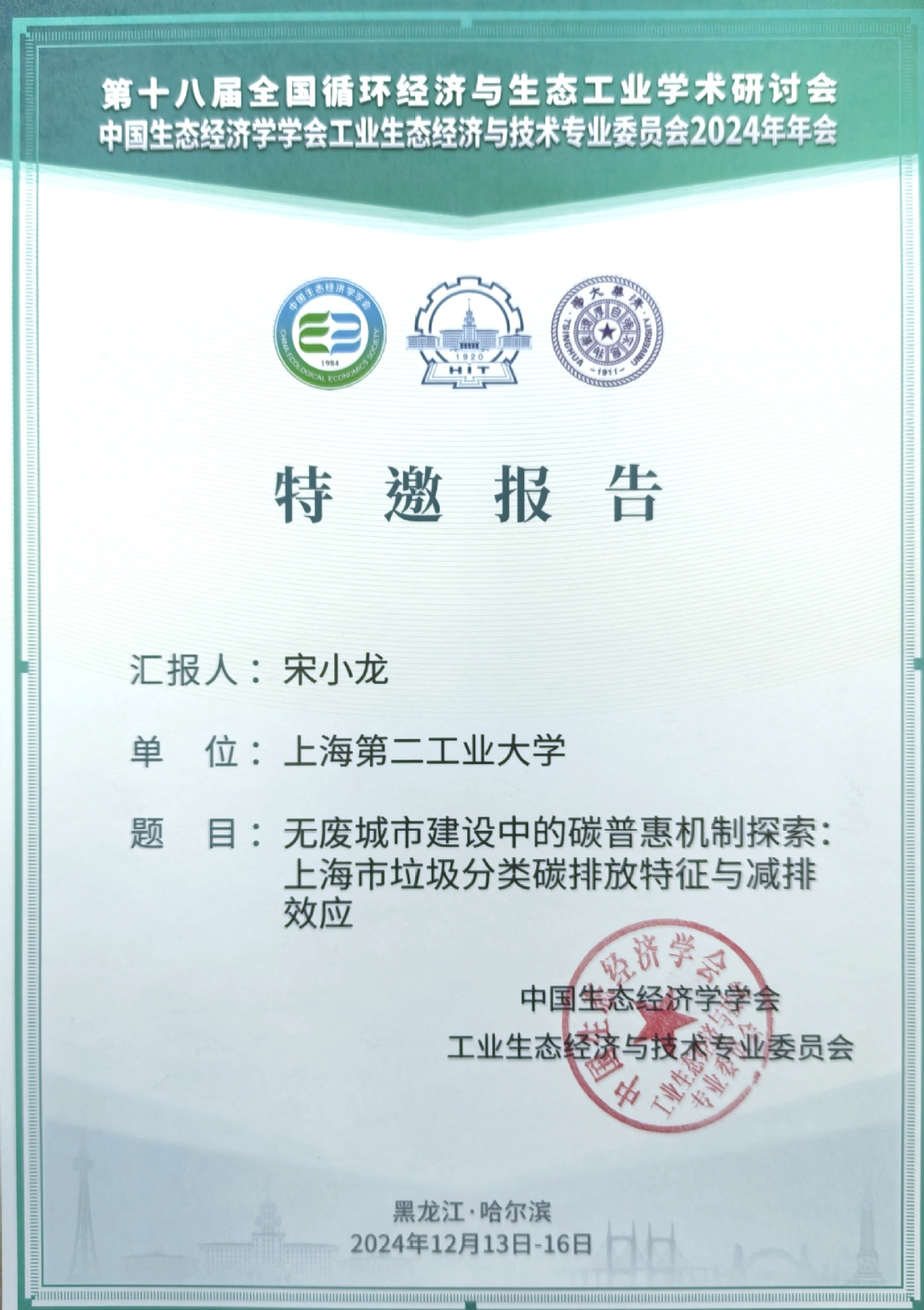From December 13 to 16, 2024, the 18th National Conference on Circular Economy and Eco-Industry, combined with the Annual Academic Meeting of the Industrial Eco-Economy and Technology Committee of the Chinese Society of Ecological Economics, was held in Harbin. The event was jointly organized by the Industrial Eco-Economy and Technology Committee and the Circular Economy Committee of the Chinese Society of Ecological Economics, together with Harbin Institute of Technology, and hosted by the State Key Laboratory of Urban Water Resources and Water Environment and the School of Environment at Harbin Institute of Technology. The conference featured presentations and keynote reports by renowned experts including Academician Yang Wantai (Chinese Academy of Sciences), Academician Ren Nanqi (Chinese Academy of Engineering), Academician Jin Yong (Chinese Academy of Engineering), and Mr. Zhu Liyang, President of the China Association of Circular Economy.

Professor Song Xiaolong from our School was invited to deliver a special report titled Exploring a Carbon Inclusion Mechanism in Zero-Waste City Development: Carbon Emission Characteristics and Reduction Effects of Municipal Solid Waste Sorting in Shanghai at the Industrial Ecology and Low-Carbon Development forum. His presentation interpreted the policy context of zero-waste cities, waste sorting, and dual-carbon goals, showcasing latest research progress in three key areas: changes in carbon emissions from waste treatment facilities under sorting policies, lifecycle carbon reduction efficiency of segregated waste collection-transportation-treatment systems, and the design of a carbon inclusion framework for city-wide waste sorting. The report attracted significant attention from participating scholars.
In recent years, Professor Song’s research team has focused on interdisciplinary directions integrating industrial ecology and resource-environment management, systematically exploring green and low-carbon transitions in circular economy and waste valorization. The team has achieved a series of outcomes in low-carbon optimization technologies for resource circulation, standardized carbon accounting methods for emerging solid waste recycling, corporate carbon asset management, and roadmaps for carbon peak and carbon neutrality.
